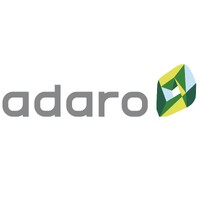
Barrick Mining Corporation
Barrick is a leading global mining, exploration and development company. We create real, long-term value for all stakeholders through responsible mining, strong partnerships and a disciplined approach to growth.



Barrick is a leading global mining, exploration and development company. We create real, long-term value for all stakeholders through responsible mining, strong partnerships and a disciplined approach to growth.

Adaro Energy Indonesia is a fully integrated coal mining and energy company from exploration through to power. It is Indonesia’s second-largest thermal coal producer, operates the largest single coal mine in Indonesia and is a significant supplier to the global seaborne thermal coal market with production volume of 47.2 million tonnes in 2012. The coal characteristics are sub-bituminous, medium heat value and ultra-low pollutant coal, with total resources of up to 12.3 billion tonnes and total reserves of 1.1 billion tonnes (JORC Compliant 2012). Because of its environmental characteristics, Adaro Indonesia’s coal is trademarked as “Envirocoal” and has proven global acceptance among blue-chip power utilities. Our vision is to be leading the Indonesian mining & energy group. Our missions are to satisfy our customer's needs, develop our people, partner with suppliers, support community and national development, maximize shareholder value. At Adaro we have long known that the task of attracting, developing and retaining highly skilled people is central to achieving our objective of creating maximum sustainable value from Indonesian coal.
Security & Compliance Standards Overview












No incidents recorded for Barrick Mining Corporation in 2025.
No incidents recorded for PT Adaro Energy Indonesia Tbk in 2025.
Barrick Mining Corporation cyber incidents detection timeline including parent company and subsidiaries
PT Adaro Energy Indonesia Tbk cyber incidents detection timeline including parent company and subsidiaries
Last 3 Security & Risk Events by Company
Angular is a development platform for building mobile and desktop web applications using TypeScript/JavaScript and other languages. Prior to versions 19.2.16, 20.3.14, and 21.0.1, there is a XSRF token leakage via protocol-relative URLs in angular HTTP clients. The vulnerability is a Credential Leak by App Logic that leads to the unauthorized disclosure of the Cross-Site Request Forgery (XSRF) token to an attacker-controlled domain. Angular's HttpClient has a built-in XSRF protection mechanism that works by checking if a request URL starts with a protocol (http:// or https://) to determine if it is cross-origin. If the URL starts with protocol-relative URL (//), it is incorrectly treated as a same-origin request, and the XSRF token is automatically added to the X-XSRF-TOKEN header. This issue has been patched in versions 19.2.16, 20.3.14, and 21.0.1. A workaround for this issue involves avoiding using protocol-relative URLs (URLs starting with //) in HttpClient requests. All backend communication URLs should be hardcoded as relative paths (starting with a single /) or fully qualified, trusted absolute URLs.
Forge (also called `node-forge`) is a native implementation of Transport Layer Security in JavaScript. An Uncontrolled Recursion vulnerability in node-forge versions 1.3.1 and below enables remote, unauthenticated attackers to craft deep ASN.1 structures that trigger unbounded recursive parsing. This leads to a Denial-of-Service (DoS) via stack exhaustion when parsing untrusted DER inputs. This issue has been patched in version 1.3.2.
Forge (also called `node-forge`) is a native implementation of Transport Layer Security in JavaScript. An Integer Overflow vulnerability in node-forge versions 1.3.1 and below enables remote, unauthenticated attackers to craft ASN.1 structures containing OIDs with oversized arcs. These arcs may be decoded as smaller, trusted OIDs due to 32-bit bitwise truncation, enabling the bypass of downstream OID-based security decisions. This issue has been patched in version 1.3.2.
Suricata is a network IDS, IPS and NSM engine developed by the OISF (Open Information Security Foundation) and the Suricata community. Prior to versions 7.0.13 and 8.0.2, working with large buffers in Lua scripts can lead to a stack overflow. Users of Lua rules and output scripts may be affected when working with large buffers. This includes a rule passing a large buffer to a Lua script. This issue has been patched in versions 7.0.13 and 8.0.2. A workaround for this issue involves disabling Lua rules and output scripts, or making sure limits, such as stream.depth.reassembly and HTTP response body limits (response-body-limit), are set to less than half the stack size.
Suricata is a network IDS, IPS and NSM engine developed by the OISF (Open Information Security Foundation) and the Suricata community. In versions from 8.0.0 to before 8.0.2, a NULL dereference can occur when the entropy keyword is used in conjunction with base64_data. This issue has been patched in version 8.0.2. A workaround involves disabling rules that use entropy in conjunction with base64_data.